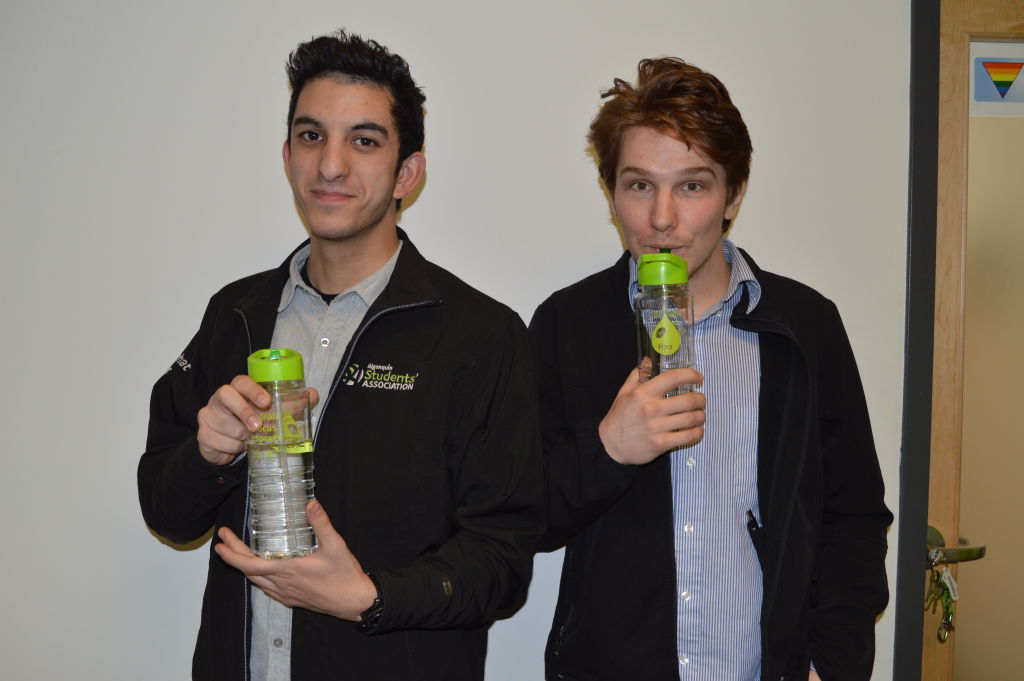
While the SA is encouraging students to switch to reusable bottles for water consumption, a ban on the sale of bottled water on campus is not part of its agenda.
Vice-president Thomas Kolafa thinks it comes down to each student to decide.
“We definitely encourage students to bring their own water bottles and refill them,” he said. “At the same time it’s still their choice if they want to buy bottled water.”
In 2011, many post-secondary schools across the country banned the sale of bottled water on their campuses. The University of Ottawa was the first Canadian university to do so in 2010.
Carleton followed with a partial ban. Businesses and events run by its student association, CUSA, or by students themselves are not allowed to sell bottled water. However, vending machines and the company in charge of food services in that university do offer bottled water. This has led to the CUSA re-considering their position in recent months and studying the possibility of lifting the ban.
Algonquin did not join that trend five years ago. Yet, the college and its community are not indifferent to the issue raised by the massive consumption of bottled water around the world.
In recent years, the Sustainable Algonquin Steering Committee, SASC, and the group SEATS (sea, earth, action team for sustainability) have run campaigns asking students and staff to limit the amount of bottled water they consume.
Kolafa is currently part of the Sustainable Algonquin Steering Committee.
According to SA board director Remi Farhat, the association’s promo teams do give free re-usable bottles to students as part of their commitment with water sustainability.
“That’s a way we try to get students to approach water consumption in a more sustainable way,” said Farhat.


